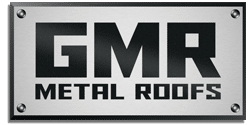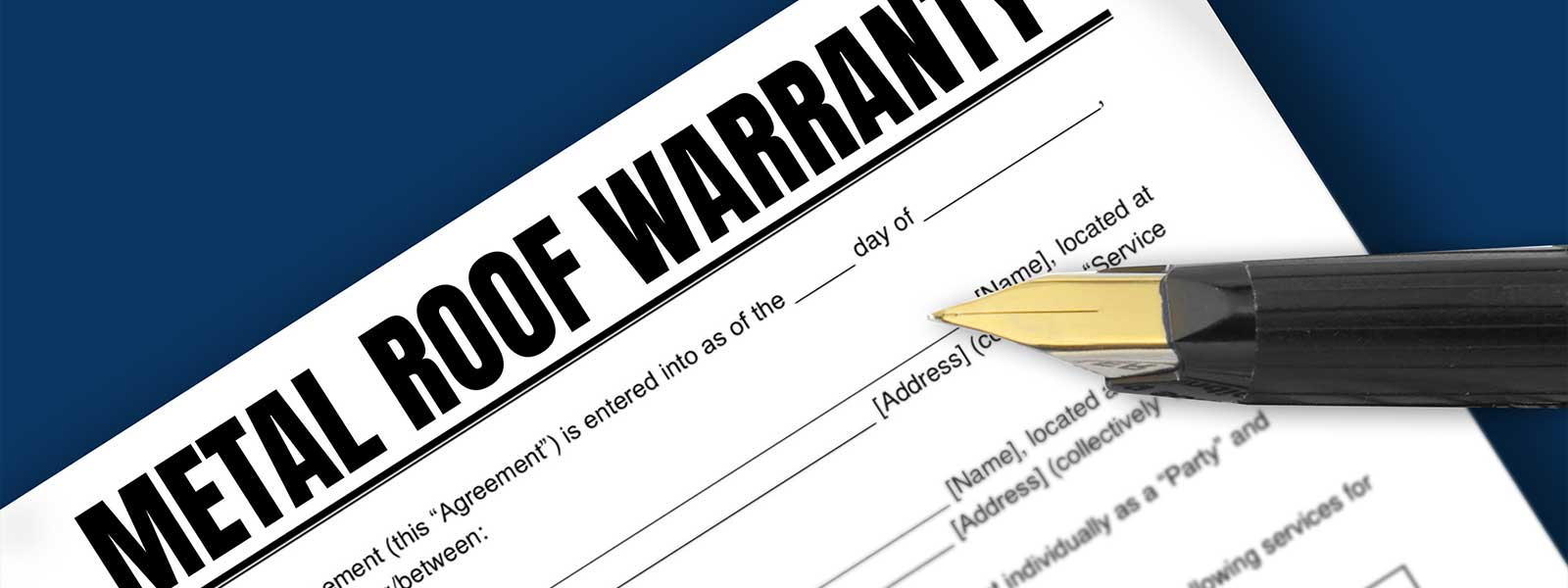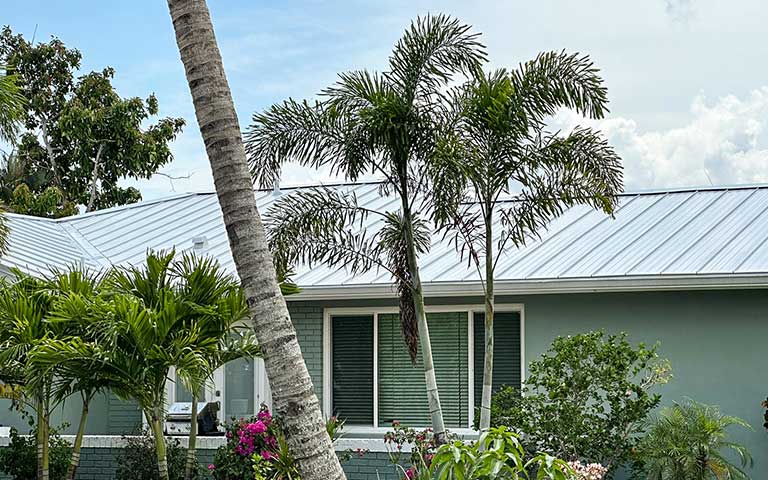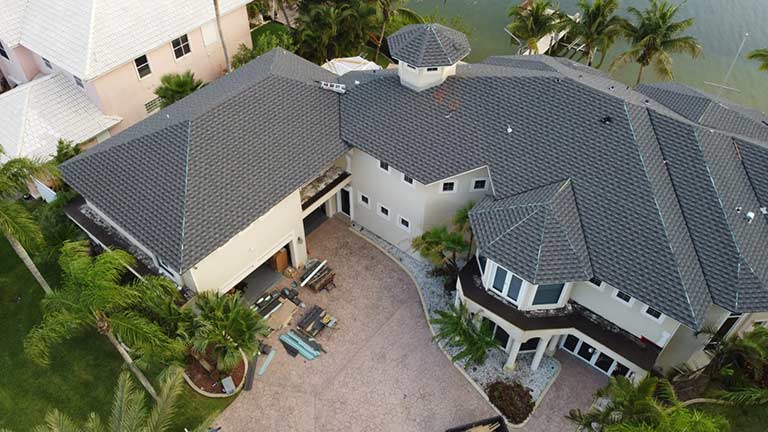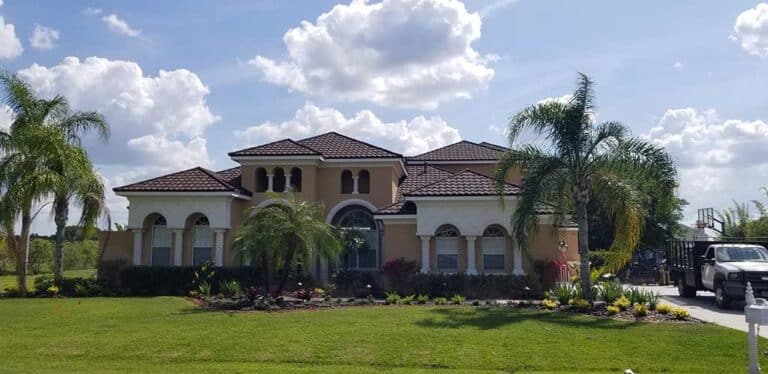Demystifying Metal Roof Warranties: A Comprehensive Guide
When it comes to choosing a roofing material for your home or business, the longevity and durability of the roof are paramount. This is where metal roofing shines, and one crucial aspect of your investment in a metal roof is the warranty that accompanies it. In this guide, we’ll delve into the world of metal roof warranties, comparing aluminum and Galvalume, discussing gauges, saltwater considerations, wind resistance, maintenance, and the specifics of various materials.
Aluminum vs. Galvalume: The Battle of Corrosion Resistance
One of the key decisions in metal roofing is choosing between aluminum and Galvalume. Aluminum boasts exceptional corrosion resistance due to its inherent properties. It doesn’t rust, making it a fantastic choice for coastal areas and regions with high humidity.
Galvalume, on the other hand, is a coated steel product featuring a mixture of zinc and aluminum. This combination provides excellent corrosion resistance due to the sacrificial protection of zinc. It’s a solid option for environments with moderate to high corrosive elements. However, Galvalume will have Saltwater proximity limitations.
Gauges Matter: Strength and Warranty
Galvalume Metal roofing gauges determine the thickness of the roofing material. The lower the gauge number, the thicker the material. Thicker metal generally translates to better durability and longevity. However, thinner gauges are often more cost-effective.
Typically, metal roofing ranges from 22 to 29 gauge, with lower gauges being thicker. Many manufacturers offer warranties that consider the gauge of the material. Thicker gauges may come with longer warranties due to their enhanced resistance to impact and weathering.
Aluminum metal is gauged using millimeters and has a range of 0.032 to 0.040, with a painted finish. The painted finish has a warranty along with the aluminum near saltwater applications.
Salt Water, Location, and Warranty Considerations
Living near saltwater can pose significant challenges to your metal roof’s lifespan. Saltwater exposure accelerates corrosion, which is why choosing the right metal and gauge becomes paramount.
When it comes to warranties, some manufacturers offer specific warranties for coastal installations due to the higher risk of corrosion. These warranties might have different terms and conditions compared to those for non-coastal installations. GMR Metal Roofs stands out as an ideal option for your metal roofing needs, because certain products we offer, has no saltwater exclusion included. This makes us the optimal selection to ensure the longevity and effectiveness of your roof in saltwater environments.
Wind Resistance: Clips and Fasteners … Spacing Matters
Metal roofs need to withstand various weather conditions, including strong winds. Design pressure wind speed refers to the wind speed a roof can withstand without significant damage. The strategic arrangement of roof clips and fasteners, denoted as clip spacing and fasteners, emerges as a pivotal factor in realizing the desired wind resilience. Diverse wind speed requirements necessitate distinct clip spacing measurements, and adhering diligently to these stipulations stands as a prerequisite to safeguarding the validity of your warranty. This diligence is especially critical in scenarios involving wind-induced damages to ensure full warranty coverage. GMR Metal Roofs proudly offers metal roofs engineered to endure winds of up to 120mph, establishing them as a top-tier selection.
Maintenance and Care for Longevity
Regardless of the metal type you choose, proper maintenance is essential for upholding your metal roof’s warranty. This includes periodic inspections to identify any potential issues like loose fasteners, damaged coatings, or debris buildup.
Following the manufacturer’s recommended maintenance guidelines not only helps extend the life of your roof but also ensures your warranty remains valid.
Various Metal Types: Stone Coated Steel, Exposed Fastener, Concealed Fastener
- Stone Coated Steel: These roofs combine the durability of metal with the aesthetic appeal of traditional roofing materials. Manufacturers often offer warranties that cover both the metal substrate and the stone coating, and no saltwater exclusions.
- Exposed Fastener Metal Roofing: These roofs have visible screws attaching the metal sheets. Warranties for this type of roofing usually consider factors such as screw sealant longevity and potential leaks around screws. Roofs of this kind might require extra maintenance compared to alternative metal roofing options.
- Concealed Fastener Metal Roofing: With hidden fasteners, these roofs offer a sleek appearance. Warranties may focus on the integrity of the fastening system and leak prevention, as well as the metal substrate and paint finish type for warranty coverage.
Warranties for Screws, Electrolysis, and Material Compatibility
Fasteners used in metal roofing, such as wood zip and wood grip screws, can impact your roof’s longevity. Using the wrong type of fasteners or combining incompatible metals can lead to electrolysis and accelerated corrosion. This emphasizes the importance of following manufacturer recommendations for fasteners and materials to maintain warranty coverage. At GMR Metal Roofs, our source of pride lies in executing the task with unwavering precision.
Governing Warranties: USA or Foreign Country?
Metal roofing warranties can be governed by various factors, including the manufacturer’s location and the distribution of their products. Some manufacturers are based in the USA, like GMR Metal Roofs, while others might be in foreign countries. It’s crucial to thoroughly review the warranty terms, conditions, and the entity responsible for enforcing the warranty to ensure you understand your coverage fully. GMR Metal Roofs takes pride in offering warranties that set the industry standard for excellence.
In conclusion, when investing in a metal roof, understanding the nuances of warranties is crucial for protecting your investment. Factors such as metal type, gauge, location, and maintenance play pivotal roles in determining the extent of coverage. By making informed decisions and adhering to recommended maintenance practices, you can enjoy the benefits of a durable and long-lasting metal roof for years to come. Contact one of our GMR Metal Roof specialists to get more information on why we are the best choice for you.
Reach out to a GMR Metal Roof expert to obtain further details about why we stand out as the ultimate choice for your needs.
etal types.
